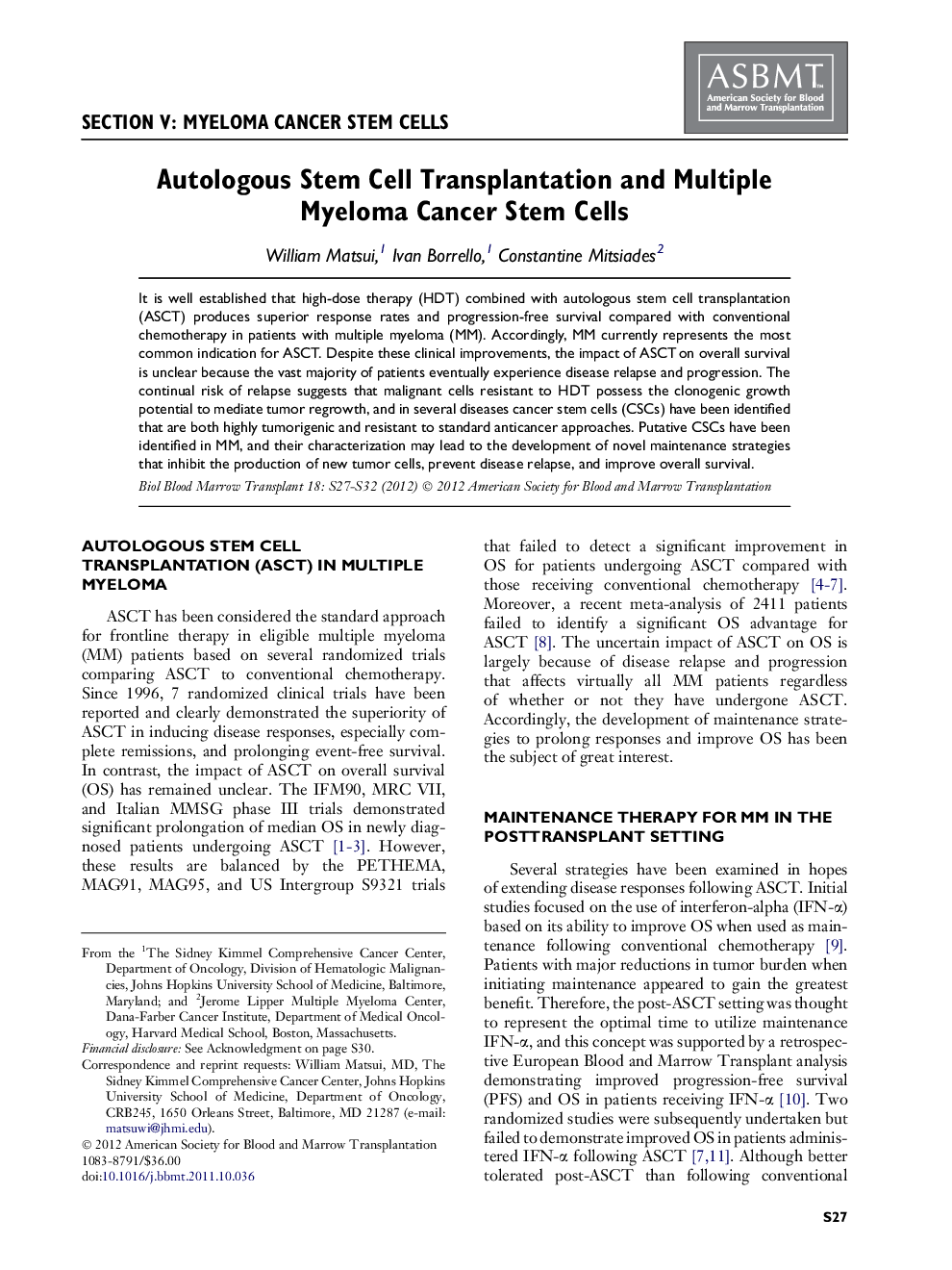| Article ID | Journal | Published Year | Pages | File Type |
|---|---|---|---|---|
| 2103742 | Biology of Blood and Marrow Transplantation | 2012 | 6 Pages |
It is well established that high-dose therapy (HDT) combined with autologous stem cell transplantation (ASCT) produces superior response rates and progression-free survival compared with conventional chemotherapy in patients with multiple myeloma (MM). Accordingly, MM currently represents the most common indication for ASCT. Despite these clinical improvements, the impact of ASCT on overall survival is unclear because the vast majority of patients eventually experience disease relapse and progression. The continual risk of relapse suggests that malignant cells resistant to HDT possess the clonogenic growth potential to mediate tumor regrowth, and in several diseases cancer stem cells (CSCs) have been identified that are both highly tumorigenic and resistant to standard anticancer approaches. Putative CSCs have been identified in MM, and their characterization may lead to the development of novel maintenance strategies that inhibit the production of new tumor cells, prevent disease relapse, and improve overall survival.
